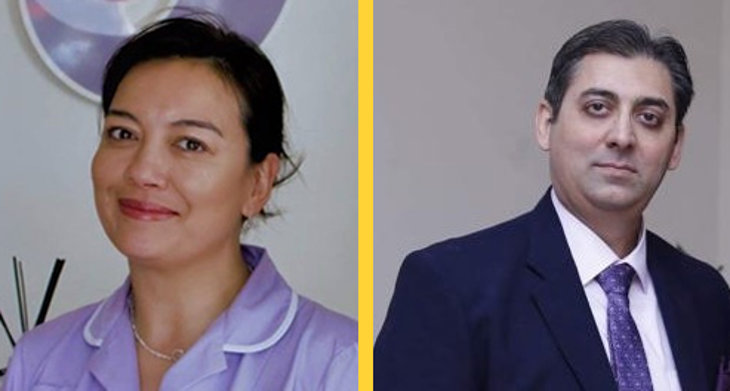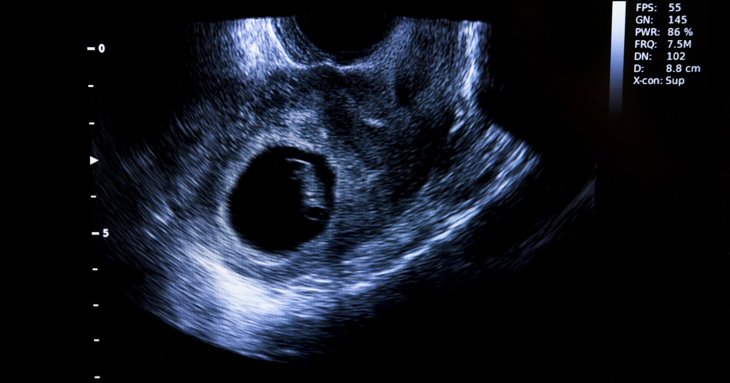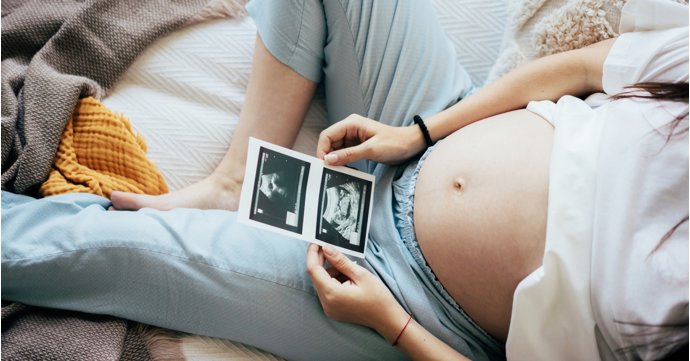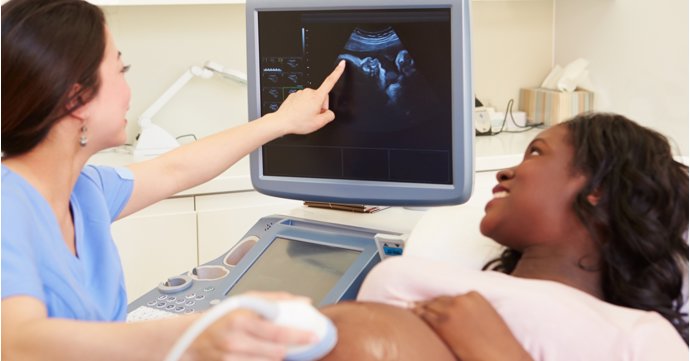Discovering you're pregnant can be exciting and terrifying in equal measure - especially if you've had trouble conceiving or carrying babies to term in the past.
SoGlos spoke to Cheltenham's expert ultrasound clinic, Early Life, to discover why parents-to-be may want to consider having an early pregnancy scan and what information they can learn from them.
About the experts - Chrissie Cooper and Dr Aamir Khan from Early Life Ultrasound

Chrissie Cooper is the clinic manager at Early Life Ultrasound in Cheltenham, as well as an obstetric sonographer with 11 years' experience. Dr Aamir Khan is an experienced consultant obstetrician and gynaecologist with a special interest in early pregnancy and emergency gynaecology. He works at one of the largest women's hospitals in UK - Birmingham Women's and Children's Hospital - as well as at Early Life in Cheltenham.
They and the team at the award-winning clinic provide peace of mind to prospective parents with a wide range consultations and specialist services, including pregnancy scans, NIPT Harmony tests and endometrial lining scans for those undergoing IVF treatment.
What is the
difference between an early
pregnancy scan and the NHS 12-week scan?
Early pregnancy scans, sometimes called viability scans, can be performed from around six weeks and would usually be to check that all is well with your pregnancy in the early stages. Early pregnancy scans are often performed a bit earlier than 12 weeks, although we would still classify a 12-week scan as an early pregnancy scan. Some people prefer to have a check before 12 weeks, as they feel that it is a long time to wait, but it is a personal choice.
The 12-week dating scan that you are offered routinely with the NHS, which is usually completed between 10 to 14 weeks, would also cover some different jobs - for example the combined test, which is screening for Down’s syndrome and some other conditions as a part of the fetal anomaly screening programme (FASP), offered to all families.
Each stage of pregnancy will have different tasks that can be done at different stages, as the pregnancy changes week by week and what you see at one stage will be quite different from what you would see at another stage.
How many weeks can you have an early pregnancy scan from?
At Early Life Ultrasound Centre, we offer early scans from seven weeks, to avoid any anxieties such as it being too early for anything to be seen on the scan. This could be for a variety of reasons, such as a longer menstrual cycle.
With IVF pregnancies we do offer early pregnancy scans from six weeks, as often the IVF clinics need to have information sooner.
What can you expect to learn from an early pregnancy scan? What would sonographers be looking for?
Early pregnancy scans will tell you if the pregnancy is in the right place, so not
ectopic. They can tell you how many babies you are carrying; let you know how
many weeks into your pregnancy you are, to approximately two or three days either side; and whether or not the
pregnancy is progressing, especially if you have had any issues in the past.
There are specific landmarks that we look for when performing an early
pregnancy scan, such as whether the yolk sac is present. The yolk sac shows
as a small circle on ultrasound and is a food store that is seen before even the
embryo is visible. Early pregnancy scans should also make an assessment of the
pelvic area and ovaries to rule out any unusual pathology.

How long does an appointment usually take?
Our appointments are spaced apart so that we have time in the scan room with each family. We actually offer twice the amount of time that most clinics do, although this time is not all spent scanning. We scan for the time that is required to gather the information needed and follow what is known as the ALARA principle - As Low As Reasonably Achievable - for scan safety, but we feel that it is very important that everything is explained and we want to make sure that people are given the chance to look through images in private, ask any questions or discuss the scan findings, which is just as important as the actual scanning.
It also means that families aren't having to queue and that each family has our undivided attention when they attend for their appointment.
If your scan reveals something concerning, what is the next step?
If your sonographer sees something that requires further attention, we will refer to your usual healthcare provider. In the UK, it would usually be to your local NHS service. Thankfully, NHS hospitals have many different departments that are able to address the type of care or treatment that is required.
Early Life also has a resident consultant obstetrician gynaecologist.
What’s the difference between a standard early pregnancy scan and a consultation with the obstetrician gynaecologist?
Dr Khan is our obstetrician gynaecologist and joined Early Life Ultrasound Centre to bring his individualised patient care philosophy and expertise in early pregnancy and gynaecology to us. He understands the stresses and anxiety of parents-to-be during pregnancy, especially in the first and second trimesters and is happy to provide early pregnancy reassurance ultrasound scans as part of a relaxed consultation to discuss any concerns during these precious stages of your pregnancy.
If people wish to see just a sonographer, they can, but they also have the option to see a consultant if they prefer - particularly if they require additional care or have clinical concerns requiring specialist advice. Dr Khan can prescribe medications if required and offer advice, explanations and recommendations for people who require more than an ultrasound alone.
In addition to early pregnancy scans, Dr Khan is also able to provide a high-quality clinical and diagnostic service to women with concerns about their gynaecological health. Having a pelvic ultrasound examination provides useful information about the causes of many gynaecological problems and, in a similar fashion to early pregnancy consultations, he has a thorough and informed discussion with patients regarding the gynaecological concerns to make an individualised management plan.
How much do scans cost?
Early pregnancy scan appointments are £99 including images. This also covers you for a rescan appointment if the information from the first scan is inconclusive. There are no hidden costs, everything is transparent with what's included listed in the scan descriptions. Others scan types, such as gender scans, start from £79; 4D scans start from £99; and again all prices are inclusive of images and rescan appointments.
Appointments with the consultant obstetrician are £225 to £285 depending on whether you opt for having an ultrasound scan or just a consultation.

Can people book a convenient time for their scan – and can they bring partners, family or friends with them?
Our calendar is available online and is live and up-to-date, so you can choose you own appointment date and time. Friends and family are very welcome, although we do limit the numbers to six people in total for each appointment for health and safety reasons.
Will they still be offered a 12-week scan on the NHS if they’ve paid for an early pregnancy scan privately?
Yes. All pregnant people are offered a 12-week dating scan regardless of whether they have had a private scan.
Are there any risks to the baby by having multiple ultrasound scans?
Obstetric ultrasound has been used since the 1950s and according to over 50 medical studies, there are no known risks to having multiple ultrasound scans. Some of these studies have followed children from preterm stage through to school age and beyond.
However, we would discourage from having too many scans without reason, particularly in the early stages. This something that we do monitor as it can flag up people who are maybe very anxious and need extra support.
You've recently moved to a new clinic on Regent Street in Cheltenham after 10 years on Imperial Square. Tell us about your new location.
The new location is absolutely beautiful. We have taken a lot of care that our clinic is an extra special place to visit as we feel that the surroundings add to the whole experience. Our premises is newly refurbished and tastefully decorated in keeping with the Regency building that is our new home.
We have created a calming atmosphere that offers privacy and feels more like a hotel than what is traditionally thought of as a clinic but, at the same time, is fit for work of a clinical nature.



















